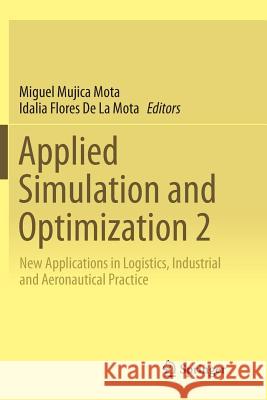Applied Simulation and Optimization 2: New Applications in Logistics, Industrial and Aeronautical Practice » książka
topmenu
Applied Simulation and Optimization 2: New Applications in Logistics, Industrial and Aeronautical Practice
ISBN-13: 9783319857541 / Angielski / Miękka / 2018 / 282 str.
Applied Simulation and Optimization 2: New Applications in Logistics, Industrial and Aeronautical Practice
ISBN-13: 9783319857541 / Angielski / Miękka / 2018 / 282 str.
cena 402,53
(netto: 383,36 VAT: 5%)
Najniższa cena z 30 dni: 385,52
(netto: 383,36 VAT: 5%)
Najniższa cena z 30 dni: 385,52
Termin realizacji zamówienia:
ok. 16-18 dni roboczych.
ok. 16-18 dni roboczych.
Darmowa dostawa!
Kategorie:
Kategorie BISAC:
Wydawca:
Springer
Język:
Angielski
ISBN-13:
9783319857541
Rok wydania:
2018
Wydanie:
Softcover Repri
Ilość stron:
282
Waga:
0.42 kg
Wymiary:
23.39 x 15.6 x 1.57
Oprawa:
Miękka
Wolumenów:
01
Dodatkowe informacje:
Wydanie ilustrowane











